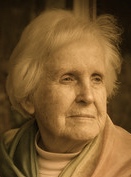Poetry Reading, March 2, 6-7 p.m., Hibulb Cultural Center
![]() hcc-mar2017-poetry-kcraft-breid-1
hcc-mar2017-poetry-kcraft-breid-1
I would love to get this flyer to just show up in the full here, but I’m wrestling with my limited technological abilities, so I’m not sure it will. Click on the link, if not.
Technology — both a curse and a blessing — sort of like learning that we have discovered 7 planets orbiting a “nearby” sun, then learning that it would take only 40 million years to travel there.
Anywho, not knowing if the flyer will appear or not, I’ll give you the highpoints. Thursday, March 2, from 6-7 p.m., I will be reading my poetry along with my friend and former colleague Kevin Craft, at the Hibulb Cultural Center located at 6410 23rd Ave NE, Tulalip, Washington. I have a new manuscript to read from, and Kevin has a new book, Vagrants and Accidentals (Pacific Northwest Poetry Series, 2017), and I will be reading new poems. from what I hope will soon be a real manuscript.
An open mike follows the reading. Kevin and I would honored to see you there.


 When I was getting an MFA in poetry, one of my professors admonished us to take on more complex subject matter. One doesn’t write about moons and hearts,” he said. But in her
When I was getting an MFA in poetry, one of my professors admonished us to take on more complex subject matter. One doesn’t write about moons and hearts,” he said. But in her  that she recently died. I don’t know whether to be sad or to rejoice that the world got to share this woman’s light for such a long time.
that she recently died. I don’t know whether to be sad or to rejoice that the world got to share this woman’s light for such a long time.